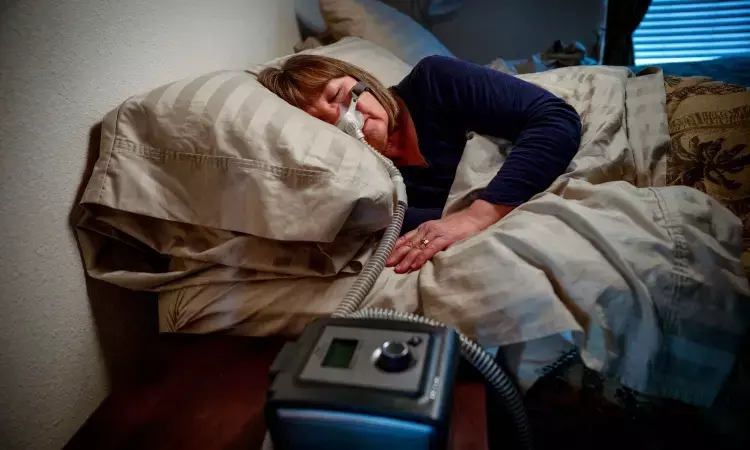- Home
- Medical news & Guidelines
- Anesthesiology
- Cardiology and CTVS
- Critical Care
- Dentistry
- Dermatology
- Diabetes and Endocrinology
- ENT
- Gastroenterology
- Medicine
- Nephrology
- Neurology
- Obstretics-Gynaecology
- Oncology
- Ophthalmology
- Orthopaedics
- Pediatrics-Neonatology
- Psychiatry
- Pulmonology
- Radiology
- Surgery
- Urology
- Laboratory Medicine
- Diet
- Nursing
- Paramedical
- Physiotherapy
- Health news
- Fact Check
- Bone Health Fact Check
- Brain Health Fact Check
- Cancer Related Fact Check
- Child Care Fact Check
- Dental and oral health fact check
- Diabetes and metabolic health fact check
- Diet and Nutrition Fact Check
- Eye and ENT Care Fact Check
- Fitness fact check
- Gut health fact check
- Heart health fact check
- Kidney health fact check
- Medical education fact check
- Men's health fact check
- Respiratory fact check
- Skin and hair care fact check
- Vaccine and Immunization fact check
- Women's health fact check
- AYUSH
- State News
- Andaman and Nicobar Islands
- Andhra Pradesh
- Arunachal Pradesh
- Assam
- Bihar
- Chandigarh
- Chattisgarh
- Dadra and Nagar Haveli
- Daman and Diu
- Delhi
- Goa
- Gujarat
- Haryana
- Himachal Pradesh
- Jammu & Kashmir
- Jharkhand
- Karnataka
- Kerala
- Ladakh
- Lakshadweep
- Madhya Pradesh
- Maharashtra
- Manipur
- Meghalaya
- Mizoram
- Nagaland
- Odisha
- Puducherry
- Punjab
- Rajasthan
- Sikkim
- Tamil Nadu
- Telangana
- Tripura
- Uttar Pradesh
- Uttrakhand
- West Bengal
- Medical Education
- Industry
Atomoxetine and Oxybutynin Combination Therapy shows Promising Results for OSA Treatment

A recent study published in the Annals of the American Thoracic Society reveals promising results for the treatment of obstructive sleep apnea (OSA) using a combination of noradrenergic and antimuscarinic agents.
The combination of Atomoxetine (noradrenergic) and Oxybutynin (antimuscarinic) has recently displayed improvement in upper-airway function and reduced OSA severity. The study aimed to determine the safety, tolerability, and potential efficacy of longer-term use of the combination therapy in individuals with predominantly severe OSA.
The double-blind, randomized, parallel-design study involved 39 participants who were given 80/5 mg ato-oxy, 40/5 mg ato-oxy, 40/2.5 mg ato-oxy, or a placebo nightly for 30 days. Participants completed three in-laboratory sleep studies to assess efficacy and potential adverse events were assessed during in-laboratory visits and via weekly phone calls.
The study revealed the following clinical findings:
1. Mild side effects were observed and were consistent with the known side-effect profiles of each individual drug.
2. Heart rate increased by Night 30 in two active drug arms compared to placebo.
3. No clinically relevant changes were observed in blood pressure, International Prostate Symptom Score, and measures of alertness and memory between the conditions.
The study's most significant finding was the ∼50% reduction from baseline in a key OSA severity metric, the hypoxic burden with the highest dose combination. However, the combination therapy did not show a significant difference from the placebo in the apnea-hypopnea index (AHI) with 4% oxygen desaturation and hypoxic burden.
The researchers added that “The study highlights the potential of noradrenergic and antimuscarinic mechanisms for OSA pharmacotherapy development. However, further research is needed to confirm the safety and efficacy of longer-term use of the combination therapy.”
Reference:
Aishah A., Loffler K., Toson B., Mukherjee S., Adams R., et al.; One Month Dosing of Atomoxetine plus Oxybutynin in Obstructive Sleep Apnea: A Randomized, Placebo-controlled Trial; ANNALS ATS 2022l, 36538809; doi: doi.org/10.1513/AnnalsATS.202206-492OC
Dr. Mahalakshmi Sivashankaran joined Medical Dialogues as an Intern in 2023. She is a BDS graduate from Manipal College of Dental Sciences, Mangalore Batch 2022, and worked as a Junior Resident at VMMC & Safdarjung Hospital at the Department of Dental Surgery till January 2023. She has completed a Diploma in Executive Healthcare management from the Loyola Institute of Business Administration, developing skills in Healthcare Management and Administration. She covers several medical specialties including Dental, ENT, Diagnostics, Pharmacology, Neurology, and Cardiology.
Dr Kamal Kant Kohli-MBBS, DTCD- a chest specialist with more than 30 years of practice and a flair for writing clinical articles, Dr Kamal Kant Kohli joined Medical Dialogues as a Chief Editor of Medical News. Besides writing articles, as an editor, he proofreads and verifies all the medical content published on Medical Dialogues including those coming from journals, studies,medical conferences,guidelines etc. Email: drkohli@medicaldialogues.in. Contact no. 011-43720751


